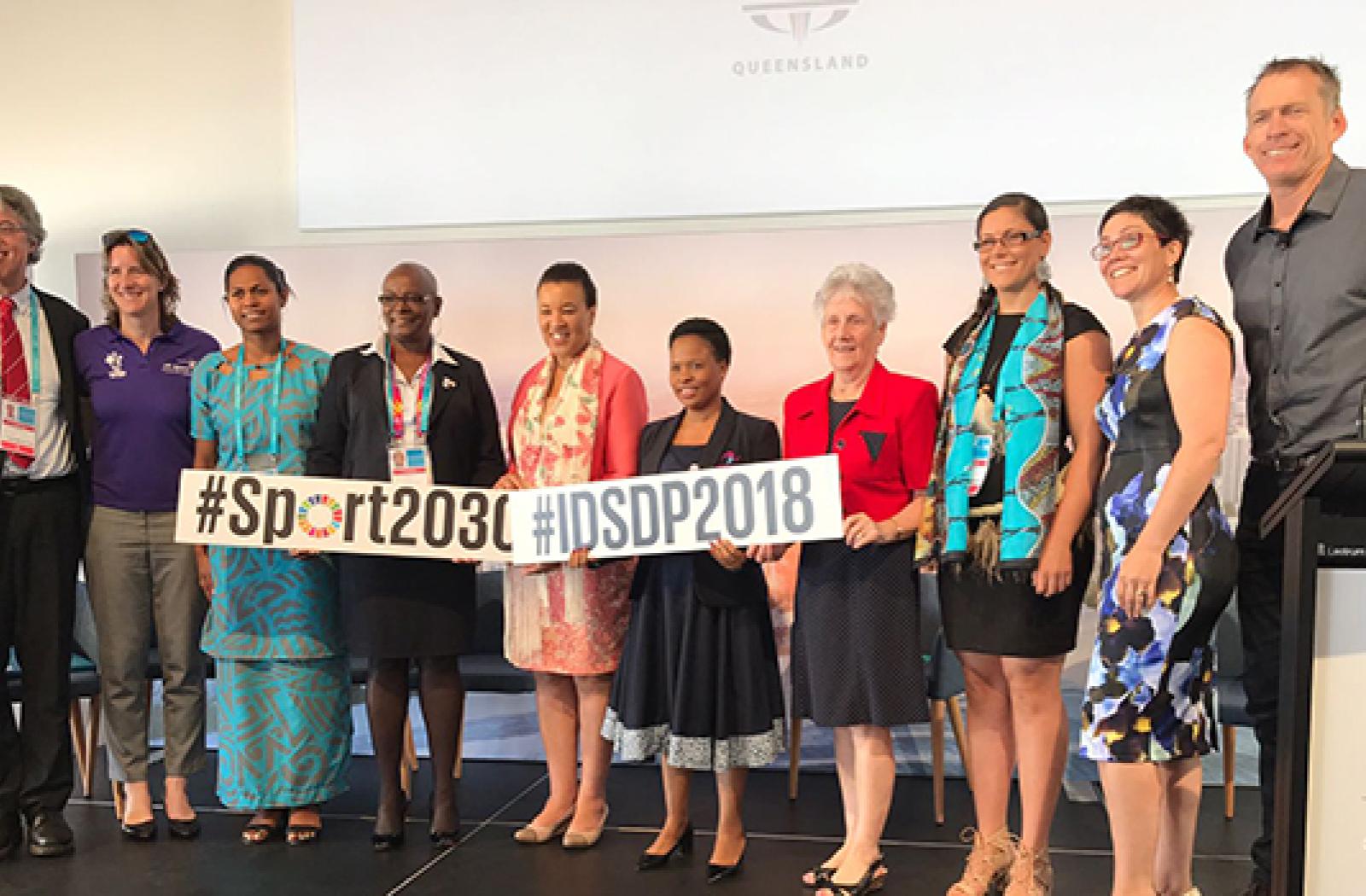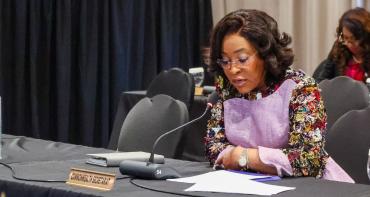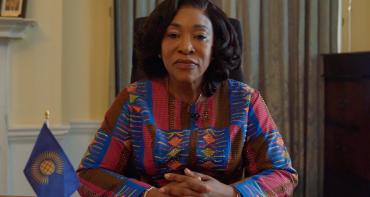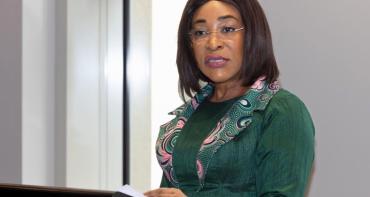The debate is the Commonwealth Secretariat’s signature annual event and the first to be held outside London. The inaugural event in 2016 was a tie. It focused on whether government investment should be focused on health outcomes or broader human and social development results.

“It’s hard for me to put a limit on the value of sport. It’s given me a way of life. It’s saved my life. It’s created who I am today.” The words of Shantelle Thompson, a jiu jitsu world champion and an Australian wrestler reserve in the 2018 Commonwealth Games in Gold Coast, Australia.
She was speaking at the ‘The Value of Sport: Maximising Opportunities in the Commonwealth’ and the third debate* on sport and sustainable development event. It marked the International Day of Sport for Development and Peace.
“In 2007, I had my first daughter and I developed post-natal depression. Then in 2009, with the birth of my twins, that journey became even harder, and I used jiu jitsu as a form of physical therapy to treat my depression after an attempted suicide,” she continued.
“Sport is so much more than a game. It has the power to transcend gender, race, socio-economic status and it gave me a positive way to manage destructive behaviour that had been learnt and taught. Growing up with family violence, growing up being an aboriginal fair skinned woman in a small rural town, sport gave me an outlet like nothing else ever did.”
The debate is the Commonwealth Secretariat’s signature annual event and the first to be held outside London. The inaugural event in 2016 was a tie. It focused on whether government investment should be focused on health outcomes or broader human and social development results.
Last year, honours were taken by the team opposing the motion that ‘Corruption in elite sport undermines the potential to promote development and peace through community sports.’ On the Gold Coast, panellists were asked to argue for or against the statement that ‘Sport pays for itself in the Commonwealth’. The event follows the 9th Commonwealth Sports Ministers Meeting.
Commonwealth Secretary-General Patricia Scotland said, “Ministers discussed the important contribution sport can make to the Sustainable Development Goals, with an emphasis on quantifying and measuring the impact of sport. Ways of leveraging sport investment as a contributor to the SDGs and human rights were also championed.
“So too were ways in which, as the Commonwealth, we can address threats to the integrity of sport such as corruption, cheating and doping, and safeguard all participants from non-accidental harm. This ‘coherent’ policy focus, which balances investment in the positive benefits of sport while supporting stronger governance, integrity and human rights protections in sport, helps to ensure sport is integrated and mainstreamed into national development polices and action across the Commonwealth.”
Throughout the debate, speakers spoke passionately that it was not about sport for sport sake, but it was how sport is used that delivers real impact. Fiji’s senior instructor for the ‘Just Play’ programme of the Oceania Football Confederation, Matelita Vuakoso, explained how the initiative promotes inclusion across Pacific countries by targeting people with disabilities to take part in mainstream community sport programmes.
There was a need for intentionally planned policy, strategy and programmes to maximise sport’s impact, said head of the Commonwealth’s sport for development and peace, Oliver Dudfield. And Australia’s sports minister, Senator Bridget McKenzie, who opened the day said, “The value of the Games, and of sport as a whole, goes well beyond the spectacle and thrill of watching elite athletes go head to head. Sport is big business, from ticket sales to stadiums, it’s estimated to directly generate between 2.5 per cent and 3 per cent of the gross domestic product of most developed economies.
“On top of this is the huge value of sponsorship and advertising and, of course, sports tourism, especially for a major event such as these Games. Sport has a huge ability to bring people and cultures together, despite their differences.
“Sports diplomacy is an increasingly important aspect of diplomatic practice and a growing part of the global sports industry. The value of good relations between nations and groups of nations is hard to measure. A world where nations can compete but “play nicely” is surely our ideal.”
Sport, said the minister, promotes honest competition, teamwork, fair play and respect where events such as the Commonwealth Games act as a catalyst for change.
In the end the adjudicators felt that the motion ‘Sport pays for itself in the Commonwealth’ was carried.
*The following took part in the debate:
Sen the Hon. Fortuna Belrose, Minister of Local Government and Culture, St Lucia and Regional Vice-President (Caribbean) of the Commonwealth Games Federation
- Matelita Vuakoso, Community leader in the ‘Just Play’ programme of the Oceania Football Confederation and member of the Fijian National Football Team
- Fabrizio Carmignani,Dean, Griffith University Business School
Presenting the case that sport can do more to maximise returns on investment:
- Dame Katherine Grainger,Chair, UK Sports
- Shantelle Thompson, two time ju-jitsuworld champion
- Game Mothibi,Secretary-General, International Working Group on Women and Sport, Botswana



